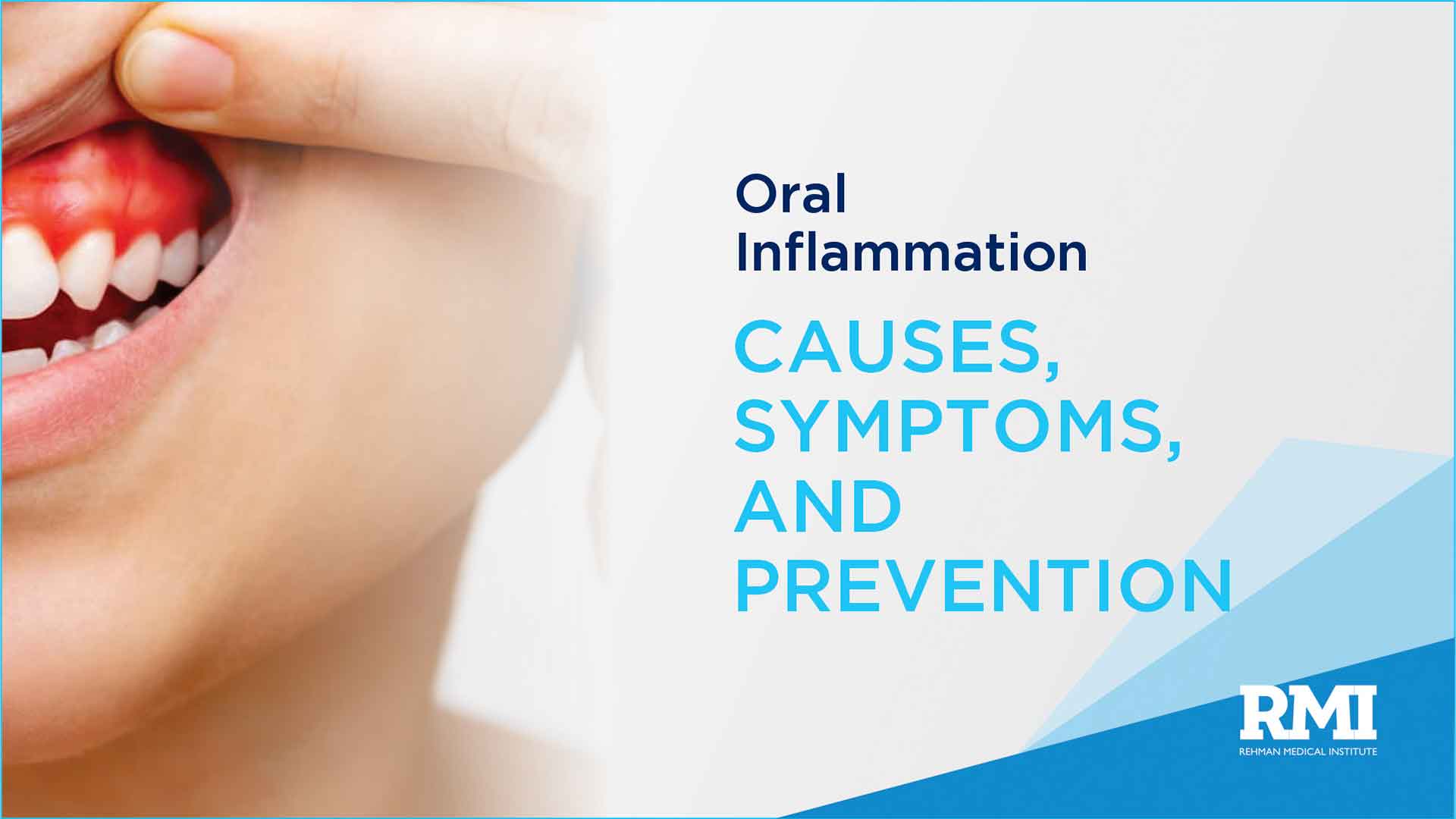In the realm of oral health, one often hears about cavities, gum disease, and tooth decay. However, there’s a silent culprit that can wreak havoc on your oral well-being – oral inflammation. This often-overlooked condition can lead to a host of dental issues if left unchecked. In this blog, we’ll delve into the causes, symptoms, and effective prevention strategies to keep your oral health in top-notch condition.
Oral inflammation refers to the body’s natural response to harmful stimuli, such as bacteria, viruses, or injury, affecting the soft tissues in the mouth. While inflammation is a normal and necessary part of the body’s immune response, chronic inflammation can be problematic. In the oral cavity, persistent inflammation can lead to serious conditions like gingivitis, periodontitis, and other dental woes.
Causes of Oral Inflammation:
Poor Oral Hygiene: The most common cause of oral inflammation is inadequate oral hygiene practices. Failing to brush and floss regularly allows plaque to build up, leading to bacterial growth and subsequent inflammation.
Gum Disease: Gingivitis and periodontitis are forms of gum disease that involve inflammation of the gums. If left untreated, these conditions can progress, causing irreversible damage to the gums and supporting structures.
Medical Conditions: Certain systemic conditions, such as diabetes and autoimmune disorders, can contribute to oral inflammation. These conditions compromise the body’s ability to fight off infections, making the gums more susceptible to inflammation.
Smoking and Tobacco Use: Tobacco use is a major risk factor for gum disease and oral inflammation. The chemicals in tobacco products can impair the immune system, making it harder for the body to fend off infections.
Symptoms of Oral Inflammation:
Red or Swollen Gums: Healthy gums should appear pink and firm. Redness or swelling is often a sign of inflammation.
Bleeding Gums: If your gums bleed during or after brushing, it could indicate inflammation. Healthy gums should not bleed with regular brushing and flossing.
Bad Breath: Persistent bad breath, also known as halitosis, can be a sign of oral inflammation. Bacteria in the mouth release odorous compounds, contributing to unpleasant breath.
Receding Gums: Inflammation can cause the gums to pull away from the teeth, leading to recession. This can expose the tooth roots and increase the risk of decay.
Preventing Oral Inflammation:
Maintain Good Oral Hygiene: Brush your teeth at least twice a day and floss daily to remove plaque and prevent bacterial growth.
Regular Dental Checkups: Schedule regular visits to your dentist for professional cleanings and checkups. Early detection of issues can prevent the progression of oral inflammation.
Healthy Lifestyle Choices: Quit smoking and limit alcohol intake. Adopting a balanced diet rich in fruits, vegetables, and lean proteins can also contribute to overall oral health.
Manage Underlying Health Conditions: If you have a medical condition that may contribute to oral inflammation, work with your healthcare provider to manage and control it effectively. Prioritizing oral health is essential for overall well-being, and understanding the nuances of oral inflammation is a crucial step in this journey. By adopting good oral hygiene practices, making healthy lifestyle choices, and seeking professional dental care, you can keep oral inflammation at bay and preserve your radiant smile for years to come. Remember, a healthy mouth is a gateway to a healthier you!

